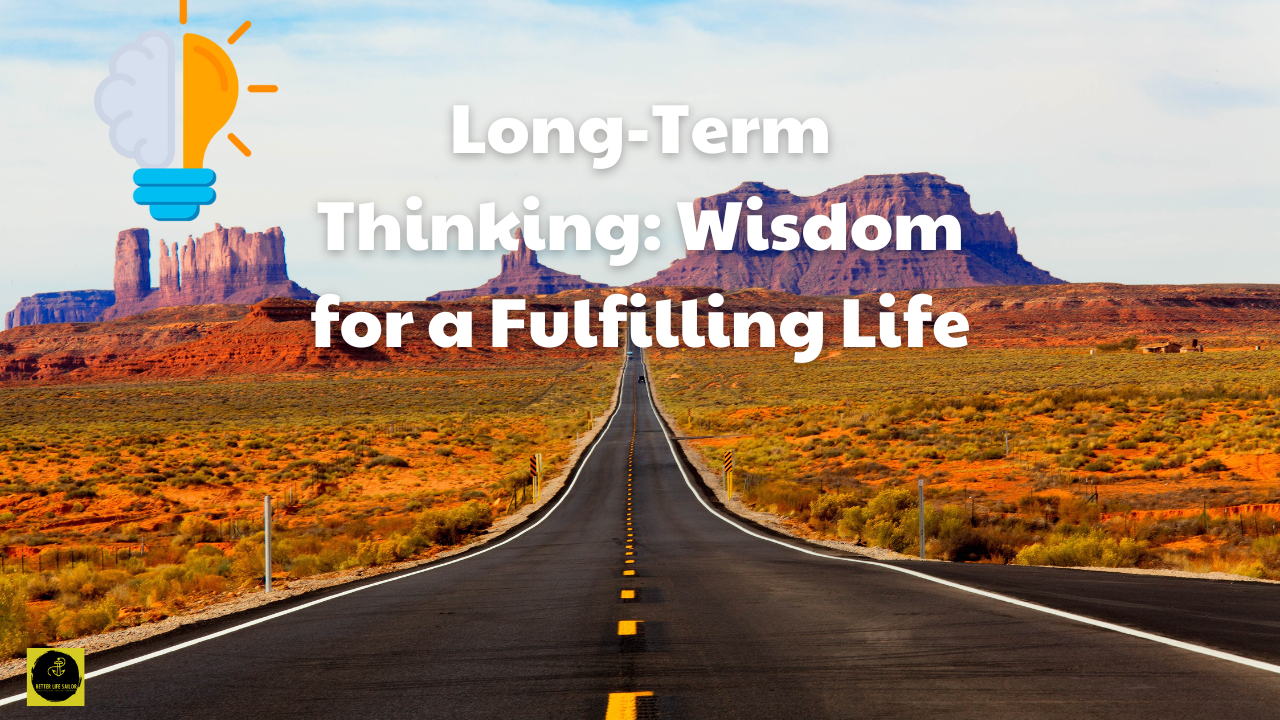the concept of long-term thinking. Philosophers throughout history have pondered the significance of looking beyond the present moment. let’s discuss the wisdom behind long-term thinking and provide real-world examples to illustrate its importance
Long-term thinking is a mindset that involves making decisions based on their future consequences. It is a viewpoint that brings to life the exciting possibilities of what’s to come, and each decision you make is made with an expected timeline in mind. You’ll be more able than others to see, hear and feel the future as if it was the current reality. Long-term thinking is a mix of practical and visionary planning that helps you envision and consciously work towards the future. It’s about being comfortable with the idea of working towards a goal that may take years or even decades to achieve..
“Long-term thinking is your best short-term strategy.”

Seth Godin
To begin, let’s define long-term thinking. It’s a mindset that encourages us to consider the consequences of our actions over extended periods. Instead of chasing short-lived pleasures, long-term thinking invites us to plant seeds today that will yield bountiful fruits in the future.

One profound example of long-term thinking is environmental conservation. Think of conservationists who protect natural habitats, like rainforests. By safeguarding these ecosystems, they ensure a healthier planet for future generations. It’s a sacrifice today for a sustainable tomorrow.
Long-term thinking also applies to personal growth. Philosophers advocate continuous learning and development as a lifelong journey
Consider someone who commits to lifelong learning. They read books, take courses, and seek new experiences throughout their life. This investment in knowledge and skills pays off not just in the short term but throughout their entire life, enhancing their career and personal fulfillment.

Long-term thinking can help people succeed in life by providing them with a clear vision of what they want to achieve and how they can get there. It allows them to set goals and work towards them systematically, without getting sidetracked by short-term distractions. For example, if someone wants to become a doctor, they need to plan their education and training accordingly, which may take several years. By focusing on their long-term goal, they can stay motivated and committed to their studies, even when it gets tough.
“Someone is sitting in the shade today because someone planted a tree a long time ago.”

Warren Buffett
Another example of long-term thinking is investing in your retirement. By saving money consistently over several decades, you can build up a significant nest egg that will provide financial security in your golden years. This requires discipline and patience, but the rewards are worth it.
In business, long-term thinking can help companies stay competitive by anticipating changes in the market and adapting accordingly. For instance, Amazon’s leadership principles emphasize long-term thinking as one of their core values. Peter Thiel, co-founder of PayPal and Palantir, advocates for entrepreneurs to show more ambition when building new ventures – you’re not just building a company, he says, you’re building the future.
Ethical businesses exemplify long-term thinking. Instead of prioritizing short-term profits, they consider the impact of their actions on employees, customers, and society. Over time, this builds trust and a loyal customer base, ensuring long-term success.

Philanthropists like Bill and Melinda Gates exemplify this principle. They established the Gates Foundation, which focuses on global health and education. Their long-term thinking aims to alleviate suffering and improve lives for generations to come.
long-term thinking is not just a philosophical concept—it’s a powerful approach to life. It encourages us to make choices that resonate far into the future, leaving a positive impact on ourselves, others, and the world. So, as we navigate our lives, let’s remember the wisdom of long-term thinking and the profound changes it can bring. long-term thinking is an essential skill that can help people achieve their goals and succeed in life. It requires discipline, patience, and vision but can lead to significant rewards in the future.



